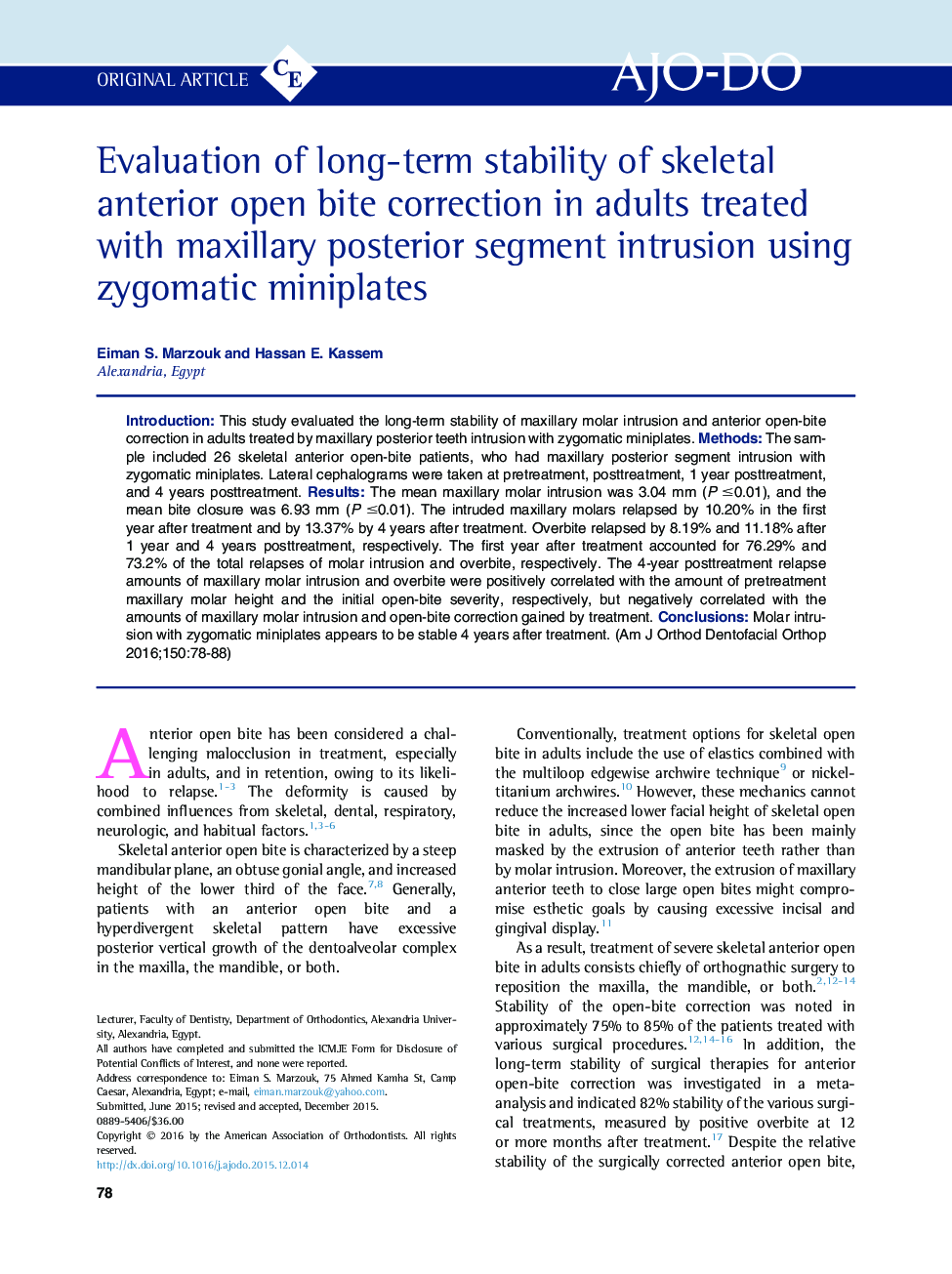| Article ID | Journal | Published Year | Pages | File Type |
|---|---|---|---|---|
| 3115375 | American Journal of Orthodontics and Dentofacial Orthopedics | 2016 | 11 Pages |
•Maxillary posterior teeth were intruded with zygomatic miniplates in adults.•Long-term stability of intrusion and anterior open-bite correction were evaluated.•Intruded maxillary molars relapsed by 10.2% in year 1 and 13.37% by year 4.•Overbite relapsed by 8.19% in year 1 and 11.18% by year 4.•Overcorrection of overbite and strict retention are recommended.
IntroductionThis study evaluated the long-term stability of maxillary molar intrusion and anterior open-bite correction in adults treated by maxillary posterior teeth intrusion with zygomatic miniplates.MethodsThe sample included 26 skeletal anterior open-bite patients, who had maxillary posterior segment intrusion with zygomatic miniplates. Lateral cephalograms were taken at pretreatment, posttreatment, 1 year posttreatment, and 4 years posttreatment.ResultsThe mean maxillary molar intrusion was 3.04 mm (P ≤0.01), and the mean bite closure was 6.93 mm (P ≤0.01). The intruded maxillary molars relapsed by 10.20% in the first year after treatment and by 13.37% by 4 years after treatment. Overbite relapsed by 8.19% and 11.18% after 1 year and 4 years posttreatment, respectively. The first year after treatment accounted for 76.29% and 73.2% of the total relapses of molar intrusion and overbite, respectively. The 4-year posttreatment relapse amounts of maxillary molar intrusion and overbite were positively correlated with the amount of pretreatment maxillary molar height and the initial open-bite severity, respectively, but negatively correlated with the amounts of maxillary molar intrusion and open-bite correction gained by treatment.ConclusionsMolar intrusion with zygomatic miniplates appears to be stable 4 years after treatment.
